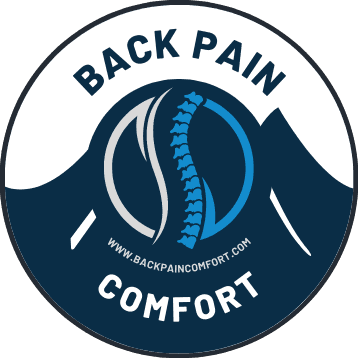
The sensation of an aching back is not unfamiliar to most of us. With a fast-paced world dominated by screens, sedentary lifestyles, and mounting stress, back pain has become as ubiquitous as the common cold. While many of us attribute it to obvious reasons like poor posture or lifting something heavy, sometimes the cause can be more elusive. Let’s unravel seven unexpected reasons that might be the culprits behind your discomfort.
Your Smartphone and Tech Gadgets
In today’s digital era, our devices practically feel like extensions of our own bodies. But with their convenience comes a price: “tech neck”. This term refers to the strain on your neck and upper back muscles when you tilt your head forward to look at your devices. Over time, this constant bending can lead to muscle pain, disk herniations, and other spinal problems. Solution? Lift your device closer to eye level and take frequent breaks.
Your Wallet
Men, this one’s especially for you! Carrying a bulky wallet in your back pocket and sitting on it can create an imbalance in your hips and pelvis. This “wallet sciatica” can irritate the sciatic nerve and lead to discomfort not just in the buttocks but also along the length of the leg. Making a habit of emptying unnecessary items from your wallet or considering a front pocket carry can be a simple remedy.
The Shoes You Wear
While high heels have been notorious for causing back issues, they aren’t the only footwear culprits. Flats, flip-flops, or any shoe without proper arch support can alter the posture of your feet, and this misalignment can reverberate up your spine. For those prone to back pain, opting for shoes with good arch support and a cushioned sole can work wonders.

Dehydration
This might come as a surprise, but yes, not drinking enough water can lead to back pain. The discs between our vertebrae are heavily reliant on water to maintain their shock-absorbing capabilities. When dehydrated, these discs can become less effective, leading to potential discomfort or pain. Ensuring that you stay hydrated throughout the day not only benefits your back but boosts overall health.
Stress and Mental Health
Our bodies have a remarkable way of manifesting emotional and psychological distress into physical symptoms, and the back is a common target. Constant stress can lead to muscle tension, especially in the neck and back. Moreover, feelings of anxiety or depression can alter pain perception, making you more sensitive to back discomfort. Taking time to manage stress through relaxation techniques, exercise, or seeking professional help can alleviate both emotional and physical pain.
Your Diet and Digestive Issues:
The food on your plate might have more to do with your back than you think. Certain foods can cause inflammation throughout your body, and this includes the spine. Inflammatory foods, like those rich in refined sugars, trans fats, and certain processed goods, can exacerbate back pain for some individuals. Additionally, digestive issues like constipation can also contribute. Straining during bowel movements can put pressure on the lower back, leading to discomfort. To counteract this, consider incorporating anti-inflammatory foods such as green leafy vegetables, nuts, and fatty fish into your diet and drink plenty of water to support digestion.
Sleep Patterns and Your Mattress
Sleep is a crucial recuperative process for the body, but how and where you sleep can be the hidden source of your back woes. A mattress that’s too soft or too hard might not provide the necessary support, leading to muscle strain and imbalances. Furthermore, your sleeping position can also play a role. For example, sleeping on your stomach can put additional strain on your neck and back. Adopting a more neutral position, such as sleeping on your back with a pillow beneath your knees or on your side with a pillow between your legs, can make a significant difference. Regularly reviewing your mattress’s condition and being mindful of your sleep posture can be instrumental in keeping back pain at bay.

Conclusion
Our backs bear the weight of our daily lives, both literally and metaphorically. While it’s essential to address obvious causes of back pain, like lifting heavy items or poor posture, it’s equally important to acknowledge and address these less evident factors. By cultivating an awareness of these unexpected triggers and taking preventative measures, you can pave the way for a healthier, pain-free back. Remember, listening to your body and seeking professional guidance when in doubt is always the best course of action.






